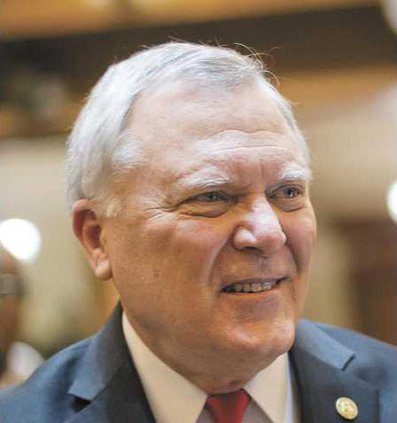ATLANTA — Georgia Gov. Nathan Deal rescinded an executive order trying to stop resettlement of Syrian refugees on Monday, five days after Attorney General Sam Olens issued an official opinion that he didn’t have that authority.
Deal’s one-sentence order cited Olens’ opinion and gave no further explanation.
Olens wrote in the opinion released last week that he wasn’t aware of “any law or agreement that would permit a state to carve out refugees from particular countries from participation in the refugee resettlement program, no matter how well-intentioned or justified the desire to carve out such refugees might be.”
“Accordingly, it is my official opinion that both federal law and the State’s agreement to act as the state refugee resettlement coordinator prevent the State from denying federally-funded benefits to Syrian refugees lawfully admitted into the United States,” he wrote.
Deal, a Republican, directed state agencies on Nov. 16 to “halt any involvement” in the acceptance of Syrian refugees until federal authorities changed the process for vetting them. At the time, he and other governors issuing similar directions cited a terrorist attack three days earlier in Paris.
The commissioner of the Georgia Department of Human Services on Nov. 18 directed agency staff not to take or process new applications for any assistance for Syrian refugees, including food stamps. The department’s Division of Family and Children Services, which administers food stamps, received a letter a week later from the federal food stamp program, warning that federal law prevents refusal of applications based on national origin.
State officials on Monday directed all staff “to resume processing applications for benefit assistance to Syrian refugees,” according to a memo.
Joshua Sieweke, director of the Atlanta office of the refugee resettlement organization World Relief, said a Syrian family — a married couple and their 4-year-old son — arrived Nov. 30 in Georgia. They applied for food stamps and Medicaid benefits within days, but the applications weren’t approved until Monday.
In the meantime, federal funds and volunteer donations helped the family secure an apartment, food and other needs, he said.
“I’m hoping now they will truly feel the full welcome they deserve,” Sieweke said. “Their experience won’t be just based on the kindness of volunteers but also will extend to the state.”
Immigration legal experts immediately questioned governors’ authority to prevent resettlement. Deal defended the order but on Dec. 7 asked Olens to weigh in.
Olens wrote in his opinion that the federal government has sole authority when placing refugees. He said the state could end its agreement with the federal government to operate the refugee resettlement program but still would have to provide benefits.

